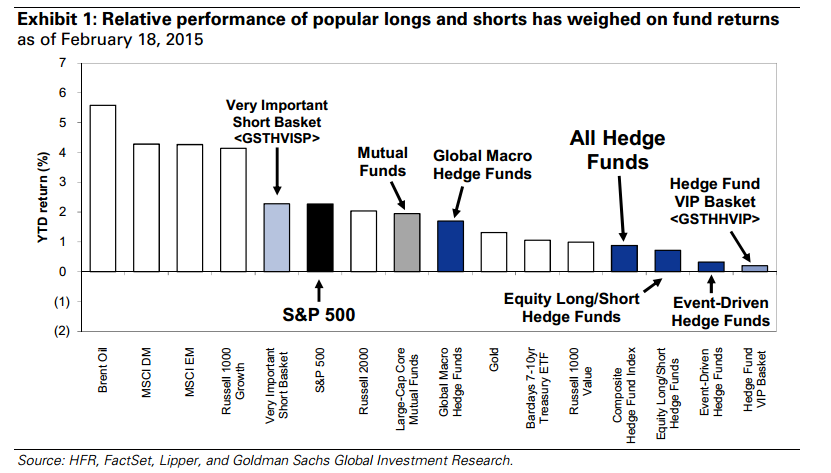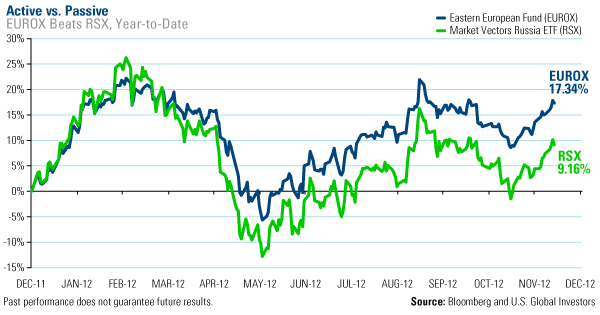Why Canadian mutual funds underperform
Post on: 5 Июль, 2015 No Comment

“Practice makes perfect” is an adage so often used, it’s become accepted as a universal truth. But does it apply to investing? If practice did make perfect in the investment world, then the longer a mutual fund has existed, the more likely it would be to outperform.
But the opposite actually holds true: the longer the time horizon, the more likely a mutual fund has under performed. According to recent data from Fundata.com, 53% of Canadian Equity funds have outperformed the S&P/TSX Composite Index in the last three years. This value drops to 34% for funds with a five-year history, and falls to a paltry 14% for funds with a 10-year history. Could it be that practice makes im perfect? Let’s explore some common reasons behind the mutual fund industry’s poor results.
The unfortunate truth is that, for many mutual fund companies, outperforming is not the primary goal. Mutual funds generate revenue by charging their clients management fees — the more assets they manage, the more fees they generate. As a result, mutual fund companies typically want to grow their assets as much as possible in order to maximize revenues. The problem is that as assets grow, it can become more difficult for the fund company to maintain its investment strategy, particularly if their strategy involves owning shares of small companies that don’t trade very frequently.
This occurs because, paradoxically, the fund manager has fewer investment choices as assets grow. There just aren’t enough Canadian stocks whose shares trade in sufficient quantities to make it feasible for large funds to buy easily. As a result, a manager may end up selecting a stock because it is easier to trade, rather than because it is a great company to own. In this way, increased asset size can hinder the investment strategy and have a real detrimental impact on subsequent performance. If a fund has grown significantly, it is possible that its investment strategy has been forced to change over time. So before you invest your hard earned dollars in a fund, you should ask your advisor for proof that the fund’s investment style remains consistent.
For example: Of the largest 22 mutual fund firms in Canada (which account for nearly two-thirds of all Canadian equity mutual fund assets) the typical firm has approximately $5-billion invested in Canadian equities. In order for a fund to buy a 3% weighting in one stock for its portfolio, it would need to purchase shares in that company worth $150-million. The problem is that there are relatively few Canadian stocks that trade with enough “liquidity”: only 117 Canadian companies trade at least $150-million in a month. That’s really not a lot to choose from considering many funds hold 60 stocks or more.
So what’s the alternative? Consider a firm that has only $100-million invested in a Canadian equity fund. A 3% portfolio weighting would equate to just $3-million invested in a single stock. Not surprisingly, the pool of stocks from which this smaller firm can choose is much higher, nearly five times as large. A larger pool gives the manager a better chance to find stocks that fit their preferred strategy. This is a distinct advantage for a manager with less assets under management. In the investment business, size truly does matter, and bigger isn’t better.

Anyone who has ever tried to quit smoking, lose weight, or exercise regularly will tell you the only route to success is through discipline. The investment industry is no different: success depends on following an investment style with unfailing discipline. But if a large fund manager’s stock selection process is hampered because they can only choose stocks that are liquid enough, the result is that many of the stocks they would like to own are simply inaccessible.
Canadian equity mutual funds have a poor track record of underperforming in both the short and long term. While it is impossible to explain all of the reasons, there are clearly some significant structural issues in the mutual fund industry that work against these investment managers.
Investors should look for investment firms that manage assets on a scale where they can stick to their discipline so that their investment strategy won’t be compromised.
David Fruitman is vice-president & portfolio manager and Brennan Carson is vice-president of client service and business development at Stylus Asset Management Inc.














